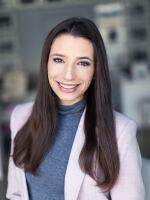With a new quarter underway at San Luis Obispo’s Cal Poly, the university’s testing program has expanded since the fall, when students living on-campus only had to get tested every other week. Now it applies to students who live in university housing, are enrolled in face-to-face classes, work on campus, use on-campus resources or live with a student who meets any of these requirements.
“Two-times-a-week testing of students that are on campus for any reason is really the best practice from a university setting,” said Cal Poly president Jeffrey Armstrong, adding the new program is a response to the number of coronavirus cases in California and the rest of the country.
Cal Poly has a contract with a company called Avellino to provide what’s known as PCR testing to most of the more than 13,500 students tested as of January 13, according to Cal Poly’s Coronavirus Dashboard.
Later this month, the university will switch to a saliva test developed by university faculty member Nathaniel Martinez, said Armstrong.
“It’s PCR, it’s molecular—which is the gold standard—and it is also very reasonably priced,” Armstrong said. “And so that allows us to increase testing.”
Once Cal Poly has switched to the saliva-based test, everything will be done on campus and the school won’t need an outside contractor. The plan is to hire students to work in testing labs.
Armstrong also said Cal Poly will be testing wastewater from residence halls to detect any outbreaks.
“No degree of testing will stop or eliminate COVID-19, but the more frequently you test, the better it is for you to be able to manage the cases,” Armstrong says.
The testing is free to all faculty, staff and students.
Whether or not the current testing program will continue next quarter depends on the prevalence of the virus.
“I do hope that the frequent testing will allow us to do a bit more and we plan to be back at a much higher percentage in-person in the fall,” said Armstrong, adding that he “strongly encourages students and faculty to get vaccinations when they are available, unless there is a medical reason why they cannot.”
And that for the next few terms at least, Cal Poly will offer virtual options to those unable to get the vaccine or still susceptible to the virus.




